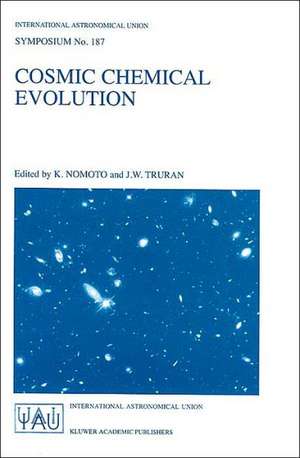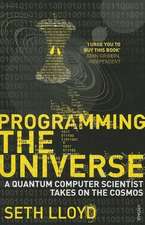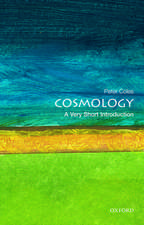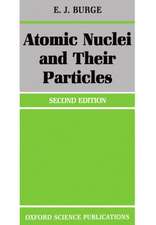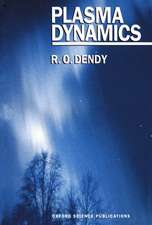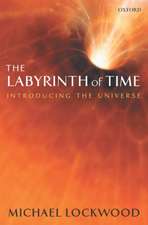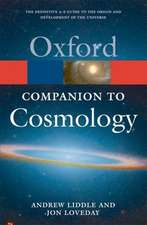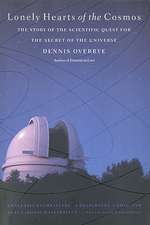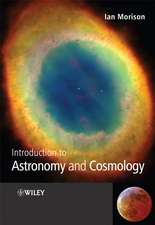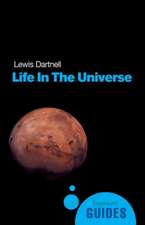Cosmic Chemical Evolution: Proceedings of the 187th Symposium of the International Astronomical Union, Held at Kyoto, Japan, 26–30 August 1997: International Astronomical Union Symposia, cartea 187
Editat de K. Nomoto, J.W. Truranen Limba Engleză Paperback – 31 mar 2002
| Toate formatele și edițiile | Preț | Express |
|---|---|---|
| Paperback (1) | 944.19 lei 6-8 săpt. | |
| SPRINGER NETHERLANDS – 31 mar 2002 | 944.19 lei 6-8 săpt. | |
| Hardback (1) | 948.92 lei 6-8 săpt. | |
| SPRINGER NETHERLANDS – 31 mar 2002 | 948.92 lei 6-8 săpt. |
Din seria International Astronomical Union Symposia
-
 Preț: 132.74 lei
Preț: 132.74 lei -
 Preț: 404.67 lei
Preț: 404.67 lei -
 Preț: 400.65 lei
Preț: 400.65 lei -
 Preț: 412.95 lei
Preț: 412.95 lei - 15%
 Preț: 660.68 lei
Preț: 660.68 lei - 15%
 Preț: 654.43 lei
Preț: 654.43 lei -
 Preț: 407.98 lei
Preț: 407.98 lei - 18%
 Preț: 1238.74 lei
Preț: 1238.74 lei - 15%
 Preț: 659.53 lei
Preț: 659.53 lei -
 Preț: 409.89 lei
Preț: 409.89 lei - 18%
 Preț: 1556.77 lei
Preț: 1556.77 lei - 18%
 Preț: 1852.43 lei
Preț: 1852.43 lei - 18%
 Preț: 1235.57 lei
Preț: 1235.57 lei -
 Preț: 419.14 lei
Preț: 419.14 lei -
 Preț: 414.52 lei
Preț: 414.52 lei -
 Preț: 417.41 lei
Preț: 417.41 lei - 15%
 Preț: 647.73 lei
Preț: 647.73 lei - 18%
 Preț: 967.56 lei
Preț: 967.56 lei - 18%
 Preț: 1236.06 lei
Preț: 1236.06 lei -
 Preț: 407.39 lei
Preț: 407.39 lei - 15%
 Preț: 654.12 lei
Preț: 654.12 lei -
 Preț: 416.26 lei
Preț: 416.26 lei - 18%
 Preț: 960.78 lei
Preț: 960.78 lei - 18%
 Preț: 1239.67 lei
Preț: 1239.67 lei - 18%
 Preț: 1239.85 lei
Preț: 1239.85 lei -
 Preț: 416.26 lei
Preț: 416.26 lei -
 Preț: 421.82 lei
Preț: 421.82 lei - 18%
 Preț: 1238.42 lei
Preț: 1238.42 lei -
 Preț: 416.26 lei
Preț: 416.26 lei -
 Preț: 405.28 lei
Preț: 405.28 lei - 18%
 Preț: 1220.54 lei
Preț: 1220.54 lei - 18%
 Preț: 1239.19 lei
Preț: 1239.19 lei - 18%
 Preț: 961.41 lei
Preț: 961.41 lei -
 Preț: 407.39 lei
Preț: 407.39 lei - 18%
 Preț: 961.86 lei
Preț: 961.86 lei - 15%
 Preț: 652.49 lei
Preț: 652.49 lei - 18%
 Preț: 1238.74 lei
Preț: 1238.74 lei - 18%
 Preț: 962.49 lei
Preț: 962.49 lei
Preț: 944.19 lei
Preț vechi: 1151.45 lei
-18% Nou
Puncte Express: 1416
Preț estimativ în valută:
180.67€ • 196.87$ • 152.24£
180.67€ • 196.87$ • 152.24£
Carte tipărită la comandă
Livrare economică 23 aprilie-07 mai
Preluare comenzi: 021 569.72.76
Specificații
ISBN-13: 9781402004490
ISBN-10: 1402004494
Pagini: 256
Ilustrații: XII, 242 p.
Dimensiuni: 160 x 240 x 13 mm
Greutate: 0.41 kg
Ediția:Softcover reprint of the original 1st ed. 2002
Editura: SPRINGER NETHERLANDS
Colecția Springer
Seria International Astronomical Union Symposia
Locul publicării:Dordrecht, Netherlands
ISBN-10: 1402004494
Pagini: 256
Ilustrații: XII, 242 p.
Dimensiuni: 160 x 240 x 13 mm
Greutate: 0.41 kg
Ediția:Softcover reprint of the original 1st ed. 2002
Editura: SPRINGER NETHERLANDS
Colecția Springer
Seria International Astronomical Union Symposia
Locul publicării:Dordrecht, Netherlands
Public țintă
ResearchCuprins
Conference Papers in order of Presentation.- Big Bang Nucleosynthesis.- Light Elements Abundances: New Insights on Stellar Mixing and Galactic Production.- The First Stars.- Type 1A Supernovae and Chemical Evolution of Galaxies.- The Chemical Evolution of Light Elements in Our Galaxy.- Nucleosynthesis in Red Giant Stars.- Fluorine Production from AGB and WR Stars.- Deuterium Abundance in the Local ISM.- Abundances in Halo Population Stars.- Abundances in the Galactic Disk.- Abundances in a Hot Horizontal-Branch Star in the Old Open Cluster NGC/6791.- On the Progenitors of Type Ia Supernovae.- Abundances from z = 0 to z = 5.- Enrichment of Heavy Elements in Clusters of Galaxies.- On the Origin of Metallicity in Lyman-Alpha Forest Systems.- A Metal Enriched Dark Cluster of Galaxies at Z = 1.- Are Elliptical Galaxies Really Metal-Rich?.- Chemical Evolution of Spiral Galaxies from Redshift 4 to the Present.- Age Problem Based on the Abundance Ratio from a High-Redshift QSO.- Stellar Yields and Chemical Evolution.- The Formation of First Generation Stars and Globular Clusters in Protogalactic Clouds.- Constraints on Galaxy Formation from Extragalactic Globular Clusters.- The Evolution of Old Stellar Populations in Our Galaxy.- Chemical Evolution of the Magellanic Clouds.- Global Evolution of the Stars, Gas, Metals, and Dust in Galaxies.- Conference Summary.- Conference Abstracts in Alphabetical Order.- Nitrogen Abundance in Oxygen-Rich Giants through K to late M.- Asymmetrical Delayed Detonation From a 3D Hydrosimulation of a White Dwarf Explosion.- Numerical Simulations of the Chemical Evolution of Galaxies Using Treecode-SPH.- Chemical Evolution of Damped Lyman ? Systems.- Abundances in Metal-Rich Stars.- Abundance Pattern of Supergiants in the Field of the SmallMagellanic Cloud and in the Cluster NGC 330.- Age and Metallicity Distribution of the Disk Stars from Edge-on Galaxies.- Evolution of the Colour-Magnitude Relation of Elliptical Galaxies.- The Optical Properties of Carbon and Graphite depend on Crystal Structure and Temperature.- Improved Theoretical Stellar Library for Population Synthesis Models.- Chemical and Spectrophotometric Evolution of Optically Identified QSO Absorption Systems.- Comparison of Nucleosynthesis Models.- The Galactic Disc Age-Metallicity Relation.- Analysis of Elemental Carbon and Oxygen Abundances in Carbon Stars — They have turned out to be more Carbon-Rich than believed.- Abundances in Evolved Intermediate Mass Stars.- Spectral Energy Distributions of z > 2 Galaxies in the Hubble Deep Field.- Blue ‘Elliptical’ Galaxies in the Hubble Deep Field.- The Symbiotic-Barium Stars Link.- The Spectral Evolution of Elliptical Galaxies in FIR and beyond.- Nucleosynthesis in ONEMG Novae: Comparison with Observations.- Constraints on Cosmic Chemical Evolution from the Gamma-Ray Background.- Disk-Wind Models for Broad Absorption Line QSO’s.- Supernova Observing Web (SNOW) Project with the Public Astronomical Observatories in Japan.- Element Abundances in Metal-Poor Stars.
